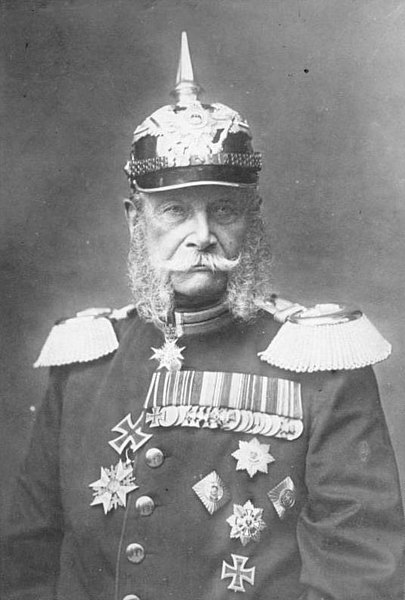Kaiser is the German word for "emperor". In general, the German title in principle applies to rulers anywhere in the world above the rank of king (König). In English, the (untranslated) word Kaiser is mainly applied to the emperors of the unified German Empire (1871–1918) and the emperors of the Austrian Empire (1804–1918). During the First World War, anti-German sentiment was at its zenith; the term Kaiser—especially as applied to Wilhelm II, German Emperor—thus gained considerable negative connotations in English-speaking countries.
Austrian Emperor Franz Joseph I and Empress Elisabeth (called Sisi)
The German Empire, also referred to as Imperial Germany, the Second Reich or simply Germany, was the period of the German Reich from the unification of Germany in 1871 until the November Revolution in 1918, when the German Reich changed its form of government from a monarchy to a republic.
The German colonial empire in 1914
Chancellor Bismarck
Wilhelm I in 1884
Die Proklamation des Deutschen Kaiserreiches by Anton von Werner (1877), depicting the proclamation of Emperor William I (18 January 1871, Palace of Versailles). From left, on the podium (in black): Crown Prince Frederick (later Frederick III), his father the emperor, and Frederick I of Baden, proposing a toast to the new emperor. At centre (in white): Otto von Bismarck, first Chancellor of Germany, Helmuth von Moltke the Elder, Prussian Chief of Staff.





